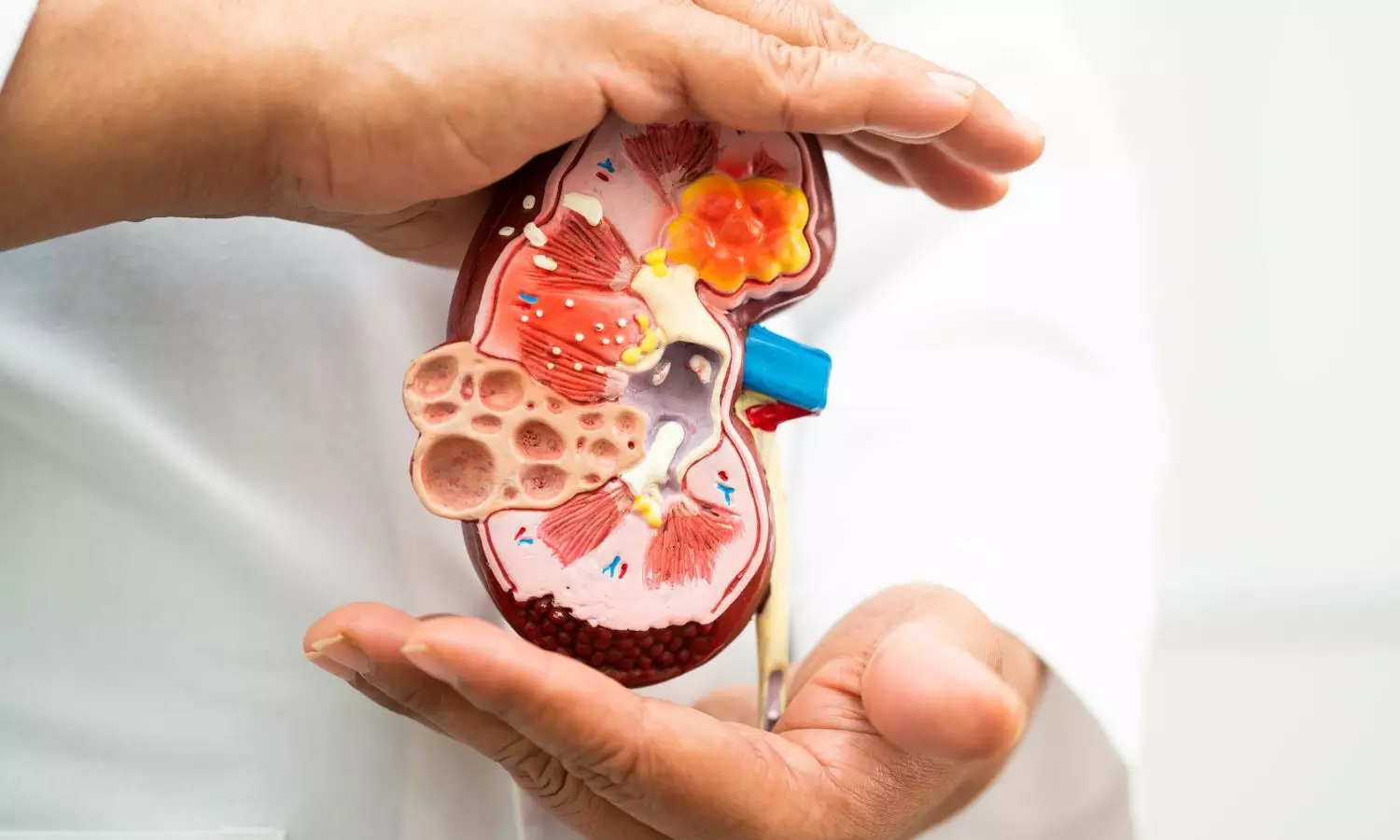Higher consumption of sugary or artificially sweetened beverages may increase risk of developing CKD: JAMA

Chronic kidney disease (CKD) is a major health concern worldwide, affecting over 800 million people. As CKD is irreversible, lifestyle changes are crucial to prevent it. Dietary modifications play a vital role in managing and preventing CKD. Beverage intake, an essential component of dietary intake, can impact fluid balance, nutrient intake, and metabolic pathways. However, the relationship between beverage consumption and CKD risk remains unclear.
A study of 127,830 adults from the UK Biobank found that excessive (more than one serving daily) consumption of sugar-sweetened or artificially sweetened beverages per day increased the risk of developing chronic kidney disease. Conversely, replacing one serving of these beverages with natural juices or water was linked to a lower risk of chronic kidney disease. This original investigation on nephrology was published in JAMA Network Open.
This research examined the relationship between sugar-sweetened beverages, artificially sweetened beverages, and natural juice consumption and the risk of developing CKD. Additionally, the study looked into these beverage substitutions. Data from the UK Biobank’s prospective, population-based cohort study was analyzed, including participants without a history of CKD who completed at least one dietary questionnaire. The study’s follow-up period was from the last dietary questionnaire until October 31, 2022, in England; July 31, 2021, in Scotland; and February 28, 2018, in Wales. Researchers analyzed the collected data from May 1 to August 1, 2023.
The study examined three beverage types – sugar-sweetened, artificially sweetened, and natural juices – about the development of CKD. Multivariable Cox models and substitution analysis were used.
Key findings from the study:
- Consuming more than one serving of sugar-sweetened beverages daily was tied to a higher risk of incident CKD with an adjusted hazard ratio of 1.19.
- The AHR for participants consuming more than 0 to 1 serving daily of artificially sweetened beverages was 1.10, and for consuming more than one serving per day, it was 1.26 compared to consuming no artificially sweetened drinks.
- There was no significant association between natural juice intake and incident CKD.
- Substituting sugar-sweetened beverages with artificially sweetened beverages did not show any significant difference in the risk of CKD (HR, 1.03).
- Conversely, replacing one serving per day of sugar-sweetened beverages with natural juice and water and replacing 1 serving per day of artificially sweetened beverage with natural juice reduced incident CKD risk.
Concluding, reducing sugar-sweetened or artificially sweetened beverages may reduce the risk of developing CKD.
Reference:
Heo GY, Koh HB, Park JT, et al. Sweetened Beverage Intake and Incident Chronic Kidney Disease in the UK Biobank Study. JAMA Netw Open. 2024;7(2):e2356885. doi:10.1001/jamanetworkopen.2023.56885
Facebook Comments
